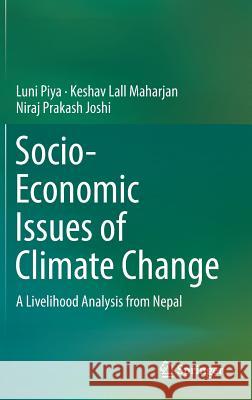Socio-Economic Issues of Climate Change: A Livelihood Analysis from Nepal » książka
topmenu
Socio-Economic Issues of Climate Change: A Livelihood Analysis from Nepal
ISBN-13: 9789811357831 / Angielski / Twarda / 2019 / 202 str.
Kategorie BISAC:
Wydawca:
Springer
Język:
Angielski
ISBN-13:
9789811357831
Rok wydania:
2019
Wydanie:
2019
Ilość stron:
202
Waga:
0.51 kg
Wymiary:
23.5 x 15.5
Oprawa:
Twarda
Wolumenów:
01
Dodatkowe informacje:
Wydanie ilustrowane











